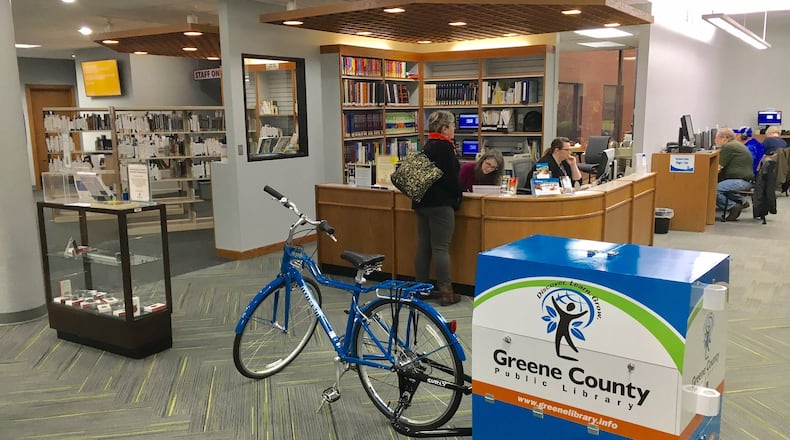“Access is at the core of our mission, and with libraries across the county, we are excited to partner with ODH to deliver these test kits,” said Greene County Public Library Executive Director Karl Colón. “COVID-19 has not only meant finding new ways to do the things we normally do as a library, but finding new ways to do the things that our community now needs.”
Patients will be able to self-administer the test while a proctor guides them using telehealth services without leaving their homes. These at-home tests are the size of a credit card and normally cost about $25, but the libraries are distributing them for free. Test takers can get results in 15 minutes.
Dr. Patrick Lytle, vice president of clinical outcomes at Kettering Health Network, said these at-home COVID tests have a place in the fight against the coronavirus, but they are not an absolute diagnosis.
The majority of hospitals are doing PCR tests, which take longer to process, but are more accurate. Antigen tests are cheaper and less accurate Lytle said, but can give quick results.
“There are higher rates of false negatives with the antigen test than with the PCR test,” Lytle said.
Lytle said he would advise people with COVID symptoms to take the test, if they’re positive, then it is likely accurate. If they get a negative test result and are still feeling symptomatic, they should seek further evaluation by their doctor.
“It has to be put into the clinical scenario,” Lytle said.
Following directions on the at-home test is the most important thing to getting an accurate test result.
“If they don’t swab right, that test is worthless,” Lytle said. “The better the specimen, the higher probability that the test will be more accurate.”
Anyone can pick up a test kit, said Greene County Public Library spokesman Evan Scott.
“If you’re thinking of traveling, you could pick one up for you and your family members. Or if you just got a new job and need a COVID test to go into the office, you could get one,” Scott said. “There are all kinds of practical uses for these tests.”
Lytle said someone taking a trip and who hasn’t been exposed to someone with COVID, the test is a good way to have peace of mind before traveling. Places like hospitals or doctor’s offices will likely prefer someone get a PCR test, since those are most reliable.
Scott said the Greene County Public Library is the only site in the area to have these at-home tests.
To get a test, residents will need to park in a Greene County Public Library “curbside pick up only” spot and call the designated number that is posted in the parking lot. Once on the phone, inform library staff you are picking up COVID testing kits. There is no need to call ahead for an at-home COVID test.
About 70 people picked up a test the first day they were available, Scott said.
Getting an accurate test result requires test takers to have a Windows or Mac laptop with a microphone, speaker and webcam or a desktop computer with an adjustable webcam and an Apple or Android phone or tablet. Two devices are needed so that test takers can scan a QR code.
Test takers must also have an email address and an internet connection. Test takers will need to download the NAVICA app from the Apple App Store or the Google Play App Store and create an account.
Those without access to these resources are encouraged to call eMed customer support at (844) 943-0753.
Ohio has reported fewer than 2,000 daily cases of coronavirus for 14 straight days, according to the Ohio Department of Health. In the last 21 days, Ohio has only reported more than 2,000 cases a day twice.
The state recorded 1,458 cases on Wednesday for a total of 993,681.
One in five Ohioans, or 20.80% of the state’s population, has received at least one dose of the coronavirus vaccine as of Tuesday, according to the Ohio Department of Health.
Ohio residents 40 and older and those with cancer, chronic kidney disease, heart disease, chronic obstructive pulmonary disease and obesity will be eligible for the COVID vaccine starting Friday. On March 29, eligibility will open to all Ohioans ages 16 and older.
Currently, the Pfizer vaccine has only approved for those 16 and older and the Moderna and Johnson & Johnson vaccine was authorized for ages 18 and older in the U.S.
Where to get a test
The tests are available at the Beavercreek Community Library at 3618 Dayton-Xenia Road, the Cedarville Community Library at 20 South Miller St., the Fairborn Community Library at 1 East Main St.; the Jamestown Community Library at 86 Seaman Drive, the Winters-Bellbrook Community Library at 57 West Franklin St., the Xenia Community Library at 76 East Market St. and the Yellow Springs Community Library at 415 Xenia Ave.
About the Author

